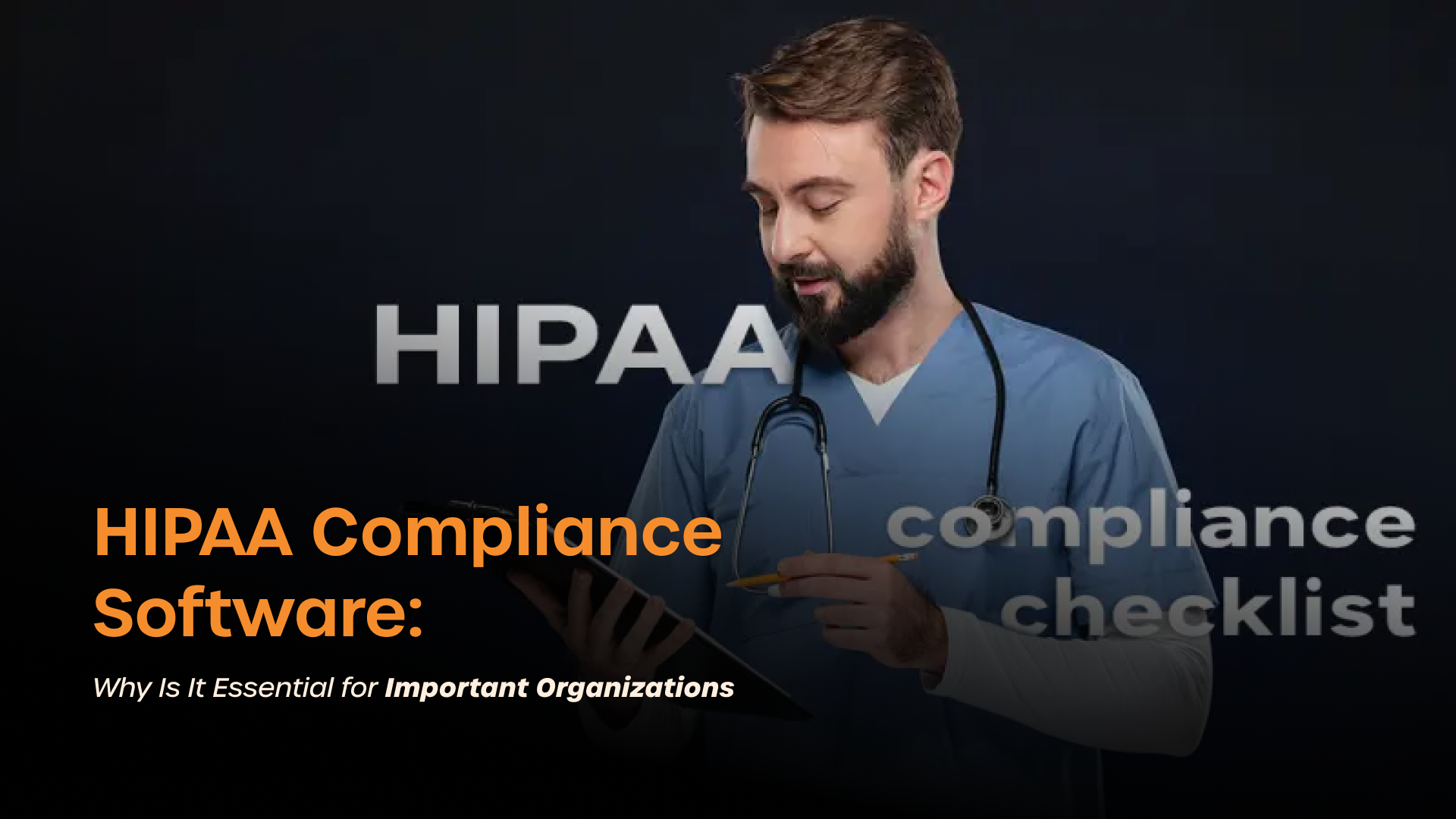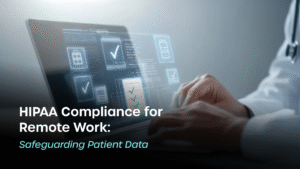HIPAA Compliance Software: Why Is It Essential for Important Organizations

Summary
HIPAA Compliance Made Easy with RemoteDesk
HIPAA compliance is crucial for safeguarding patient data and maintaining healthcare organization integrity. RemoteDesk’s HIPAA compliance software provides tools for secure PHI management, employee monitoring, and streamlined regulatory adherence.
In today’s digital age, healthcare organizations must prioritize the security of patient data more than ever before. The Health Insurance Portability and Accountability Act (HIPAA) was signed into law by President Bill Clinton in August 1996 to address the rising concerns of data breaches compromising confidential healthcare information. HIPAA aims to safeguard patients’ sensitive health data, ensuring privacy, security, and integrity of Protected Health Information (PHI). We can explore the importance of HIPAA compliance, the benefits it brings to healthcare organizations and patients, and how RemoteDesk’s HIPAA compliance software can help streamline these processes.
What is HIPAA and Why is it Important?
HIPAA, the Health Insurance Portability and Accountability Act, mandates strict guidelines for the protection and confidential handling of patient data. It ensures healthcare organizations implement robust security measures, thereby enhancing data privacy, preventing breaches, and ensuring compliance with legal standards.
Its primary goals are to:
- Ensure insurance coverage for individuals between jobs.
- Prevent healthcare fraud and secure protected health information (PHI), allowing access only to authorized individuals.
Benefits of HIPAA for Healthcare Organizations
Data Security
HIPAA’s primary benefit is enhancing data security. Healthcare organizations must implement stringent security measures to protect PHI from unauthorized access and breaches. These measures include:
- Transitioning from paper records to electronic health records (EHRs).
- Ensuring secure data sharing among healthcare providers, health plans, and other entities.
- Implementing technical, physical, and administrative safeguards as mandated by the HIPAA Security Rule.
Improved Efficiency
HIPAA compliance streamlines administrative healthcare functions, improves efficiency, and facilitates the seamless transfer of electronic health information. This not only enhances the quality of patient care but also reduces operational costs.
Legal Compliance
Non-compliance with HIPAA can result in hefty fines and penalties imposed by the HHS Office for Civil Rights (OCR). Therefore, adhering to HIPAA regulations is crucial for avoiding legal repercussions and maintaining the organization’s reputation.
Importance of HIPAA for Patients
Data Protection
For patients, HIPAA ensures that their sensitive health information is protected from unauthorized access and identity theft. This includes personal details, billing records, and other EHR data.
Patient Rights
HIPAA grants patients control over their health information, allowing them to access their medical records and decide with whom their data is shared. This transparency fosters trust between patients and healthcare providers.
Key Components of HIPAA Compliance
Security Risk Assessments
Healthcare organizations must conduct annual Security Risk Assessments (SRAs) to identify and address gaps in their HIPAA safeguards. This proactive approach ensures continuous improvement in data security measures.
Policies and Procedures
HIPAA requires organizations to develop and implement tailored policies and procedures to ensure compliance with Privacy, Security, and Breach Notification Rules. HIPAA compliance software can simplify this process by providing customizable templates and guidelines.
Employee Training
Effective compliance programs include comprehensive employee training on HIPAA regulations and cybersecurity practices. HIPAA compliance software tracks and manages training, ensuring all staff members stay updated on compliance requirements.
Business Associate Agreements
Any vendor or service provider with potential access to PHI must sign a Business Associate Agreement (BAA). HIPAA compliance software helps manage these agreements, ensuring all business associates comply with HIPAA standards.
Incident Reporting
HIPAA mandates the reporting of incidents affecting the confidentiality, integrity, or availability of PHI. Compliance software enables anonymous incident reporting and alerts administrators to take appropriate action promptly.
The Role of HIPAA Compliance Software
HIPAA compliance software serves as a comprehensive project management tool to help organizations meet all HIPAA requirements efficiently. A robust HIPAA software solution includes:
- Security Risk Assessments and remediation tracking.
- Policy and procedure management.
- Employee training and attestation tracking.
- Business Associate Agreement management.
- Incident reporting and alerting.
One such solution is RemoteDesk, offered by Compliancy Group. This AI-based platform addresses every aspect of HIPAA compliance, providing healthcare organizations with the tools to ensure they meet all legal requirements.
How RemoteDesk Can Help
RemoteDesk offers a range of services to support HIPAA compliance for healthcare organizations. Our solutions include:
- AI-Powered eDLP Security: Continuous monitoring and data loss prevention to ensure PHI remains secure.
- Facial Scan Verification: Continuous authentication to verify user identity and prevent unauthorized access.
- Compliance Management: Adherence to HIPAA PHI and PCI DSS standards, ensuring regulatory compliance.
- Employee Activity Monitoring: Real-time monitoring without storing biometric data, ensuring privacy and security.
RemoteDesk’s HIPAA-compliant solutions help healthcare organizations implement the necessary safeguards, streamline compliance processes, and maintain the highest data security standards.
Final Take on HIPAA Compliance Software
HIPAA compliance is vital for protecting patient data and ensuring the integrity of healthcare operations. By implementing HIPAA compliance software and partnering with solutions like RemoteDesk, healthcare organizations can efficiently manage compliance requirements, improve data security, and enhance patient trust. Prioritizing HIPAA compliance not only mitigates legal risks but also fosters a culture of security and privacy within the organization.




